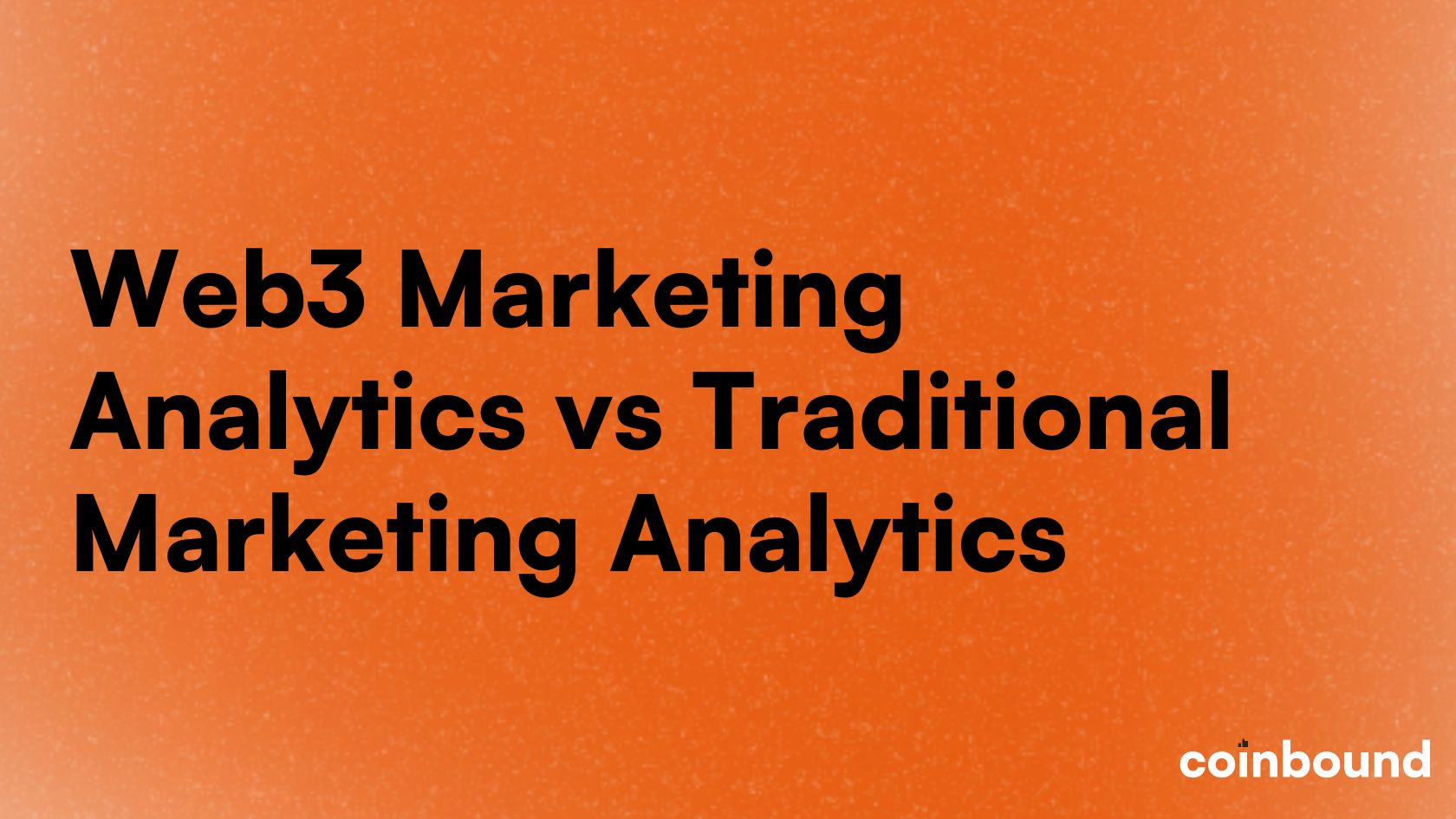Traditional marketing analytics typically involves tracking user behavior on websites and other digital platforms using data from cookies and pixels. In contrast, Web3 marketing analytics leverages data from decentralized platforms, blockchain networks, NFT projects, and Web3 games, which offer a higher degree of transparency.
One key difference between Web3 marketing analytics and traditional marketing analytics is the nature of the data being analyzed.
Web3 Data vs Traditional Marketing Data
In Web3 marketing, data is often generated by smart contracts, decentralized applications, and blockchain transactions. This data can include information about user behavior, transaction volume, and token & NFT holdings, which can be used to gain a deeper understanding of customer preferences and engagement.
Additionally, Web3 marketing analytics often involves analyzing on-chain data, which, unlike social media data, includes real purchases that provide better feedback about user actions and engagement.
The ability to establish a connection between Web3 on-chain activities, such as transactions on a blockchain, and Web2 actions, such as social media behavior, represents a remarkable and influential capability. Leveraging this functionality can lead to substantial marketing achievements and greatly benefit organizations seeking to maximize their online presence.
Best Tools for Traditional Marketing Analytics
- Google Analytics – A comprehensive tool for tracking website traffic, user behavior, and engagement metrics across various marketing channels.
- Adobe Analytics – Offers deep insights into customer segments and behaviors with advanced segmentation and real-time analytics capabilities.
- HubSpot – Provides integrated marketing tools including email marketing, social media tools, and CRM capabilities to track the customer journey effectively.
- Nielsen – Specializes in market research, audience measurement, and understanding consumer behavior across traditional media channels like television and radio.
- Kantar – Known for providing detailed insights into consumer behavior, brand performance, and competitive marketing analytics.
- SAS – Offers a suite of marketing analytics tools that help in predictive modeling, customer segmentation, and marketing optimization.
- Mailchimp – Primarily an email marketing tool that also offers analytics for email campaign performance and audience engagement.
Tools to Use Web3 Marketing Analytics
Best Tools for Web3 Marketing Analytics
Web3 marketing analytics tools are more specialized, focusing on blockchain and cryptocurrency markets:
- Dune Analytics – Allows users to create and share custom analytics dashboards that pull data directly from blockchain sources.
- Nansen – Provides insights into blockchain wallets, identifying smart money movements and token analytics in the cryptocurrency space.
- Token Terminal – Combines traditional financial metrics with blockchain-specific data to provide a comprehensive overview of blockchain projects and their performance.
- Messari – Offers in-depth reports and analytics on different cryptocurrencies, including market data, project updates, and regulatory news.
- The Graph – A decentralized protocol for indexing and querying data from blockchains, essential for building and running Web3 applications that need to perform complex searches.
- Covalent – Provides a unified API to bring full transparency and visibility to assets across all blockchain networks.
- Glassnode – Offers insights into blockchain economics and market intelligence, focusing on blockchain data and wallet analysis.








